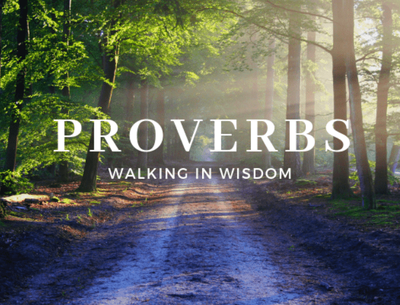Thoughts for the Day
Monday, 5th August 2024: Proverbs: 1
Proverbs Proverbs 1 Teaching Wisdom Solomon
Reading : Verses from Proverbs, Chapter 1

The proverbs of Solomon son of David, king of Israel:
For learning about wisdom and instruction,
for understanding words of insight,
or gaining instruction in wise dealing,
righteousness, justice, and equity;
to teach shrewdness to the simple,
knowledge and prudence to the young—
let the wise also hear and gain in learning,
and the discerning acquire skill,
to understand a proverb and a figure,
the words of the wise and their riddles.
The fear of the Lord is the beginning of knowledge;
fools despise wisdom and instruction.
Hear, my child, your father’s instruction,
and do not reject your mother’s teaching;
for they are a fair garland for your head,
and pendants for your neck.
My child, if sinners entice you,
do not consent.
If they say, ‘Come with us, let us lie in wait for blood;
let us wantonly ambush the innocent;
like Sheol let us swallow them alive
and whole, like those who go down to the Pit.
We shall find all kinds of costly things;
we shall fill our houses with booty.
Throw in your lot among us;
we will all have one purse’—
my child, do not walk in their way,
keep your foot from their paths;
for their feet run to evil,
and they hurry to shed blood.
For in vain is the net baited
while the bird is looking on;
yet they lie in wait—to kill themselves!
and set an ambush—for their own lives!
Such is the end of all who are greedy for gain;
it takes away the life of its possessors.
(Lectionary, New Revised Standard Version)
Thoughts
We're going to turn to the Book of Proverbs set for the Evening service for a while,(though not tomorrow) for like much of the Hebrew scriptures it has something to teach us. Proverbs is a book of books, that is, it's a collection of works by at least three people, written entirely in poetry. Perhaps poetry is easier to learn than prose, and the scriptures would have been learnt by heart! About half of the book is written in a form called 'Instruction', the rest as 'Wise words'. An 'Instruction' will contain a command that can be positive or negative, followed by a reason why it should be obeyed. The first proverb above (after the introduction) follows this pattern: "My child, if sinners entice you do not consent," because "their feet run to evil", and "they set an ambush for their own lives".
The 'Wisdom' sentence though, is nearly always in two halves: "Pride goes before destruction, and a haughty spirit before a fall." (16.18). We still use this proverb today, though we shorten it to "Pride goes before a fall". Sometimes the two halves of the proverb are a contrast to one another as in 12.25 "Anxiety weighs down the human heart, but a good word cheers it up." In the 'Wisdom' sentence the main point can be repeated in a slightly different way, as in 19.5 " A false witness will not go unpunished, and a liar will not escape." Proverbs are brief, based on experience, and they are meant to be taught and remembered.
Though not about God these proverbs are instructions for how we should live our lives as God's people. As we read above, "The fear of the Lord is the beginning of knowledge", or we might say "of wisdom". This is not fear as in terror, but reverence and submission to the God who created all things and who loves us. So as Christians let us allow these little gems to feed us for awhile.
Prayer
Lord God,
Creator of all things,
we come before You this day
in reverence and fear.
You call us to live a life
as befits Your children.
May we honour all people,
seek justice and peace,
and leave no imprint on our world
that damages Your creation.
Amen.
The book of Proverbs is part of 'Wisdom literature', this article looks at the whole subject:
Or this: